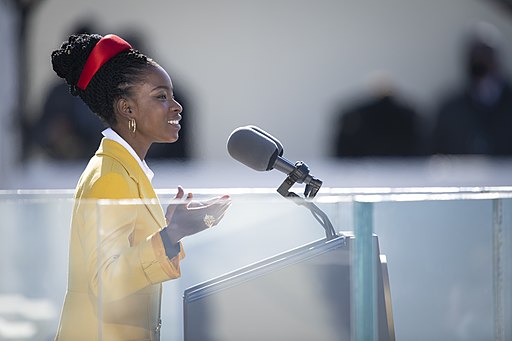
Our teacher asked us if we thought that Paul Simon had plagiarized the lyrics. (Plagiarism was a topic of discussion in that class recently.) We didn't think so and neither did our teacher who thought the use of the poem was "transformative" and so safe.
We listened to the song and looked at the poem. Most of the class liked Simon's version better, but I remember thinking that he really owed it all to Robinson.
I went to the library and borrowed a book of his poetry. (samples here) I remember liking "Miniver Cheevy" and "Mr. Flood's Party" because they were clear stories about people.
Whenever Richard Cory went down town,
We people on the pavement looked at him:
He was a gentleman from sole to crown,
Clean favored, and imperially slim.
And he was always quietly arrayed,
And he was always human when he talked;
But still he fluttered pulses when he said,
"Good-morning," and he glittered when he walked.
And he was rich—yes, richer than a king—
And admirably schooled in every grace:
In fine, we thought that he was everything
To make us wish that we were in his place.
So on we worked, and waited for the light,
And went without the meat, and cursed the bread;
And Richard Cory, one calm summer night,
Went home and put a bullet through his head.
Robinson lived in poverty and was an alcoholic until President Theodore Roosevelt read his book Children of the Night (1897). Roosevelt liked the poetry enough that he wrote a review of the book and found Robinson a job at the New York Customs Office, which saved Robinson’s life. It was a place where Herman Melville had also worked for a time. The job Robinson was given was a kind of grant as it was designed to give him as little work as possible so he could write. He received a stipend of $2,000 per year.
Here are Paul Simon's lyrics:
They say that Richard Cory owns one half of this whole town
With political connections to spread his wealth around
Born into society, a banker's only child
He had everything a man could want, power, grace and style
But I work in his factory
And I curse the life I'm living
And I curse my poverty
And I wish that I could be
Oh, I wish that I could be
Oh, I wish that I could be Richard Cory
The papers print his pictures almost everywhere he goes
Richard Cory at the opera, Richard Cory at a show
And the rumor of his parties and the orgies on his yacht
Oh, he surely must be happy with everything he's got
But I, I work in his factory
And I curse the life I'm living
And I curse my poverty
And I wish that I could be
Oh, I wish that I could be
Oh, I wish that I could be Richard Cory
He freely gave to charity, he had the common touch
And they were grateful for his patronage and they thanked him very much
So my mind was filled with wonder when the evening headlines read
"Richard Cory went home last night and put a bullet through his head"
But I, I work in his factory
And I curse the life I'm living
And I curse my poverty
And I wish that I could be
Oh, I wish that I could be
Oh, I wish that I could be Richard Cory
from Poets Online blog https://ift.tt/37Hs3xN






